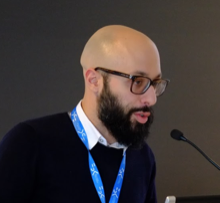The “Cognitive Systems” lab is located in Naples and carries out theoretical, experimental and applicative research activities in the field of Artificial Intelligence. Its purpose is to contribute to the creation of a new generation of intelligent software systems capable of learning, reasoning, and interfacing with people, in a natural, personalized and proactive way.
Currently, twelve researchers and four technologists, as structured staff, and other personnel units with different forms of contract, belong to the lab. In addition to the activities of the lab, professors and researchers from other Italian and foreign institutions also collaborate. The lab then cooperates with the Research and Development division of IBM Italia, one of the most prestigious companies in the sector at a national level, with which it has activated a joint center for research on cognitive systems.
Cognitive Computing today is one of the challenging themes for the entire scientific community and for the largest companies in Information Technology. The laboratory is an active part in this international scenario, developing cognitive systems able to support human beings or increase their natural intelligence, in order to solve, in an efficient and optimal way, problems, even extremely complex and articulated, in specific fields of action. Such highly evolved solutions are in fact able to emulate human cognitive abilities, such as learning from experience, reasoning and generating hypotheses, solving new problems not known a priori, perceiving, understanding and communicating with the external environment.
The ultimate goal of the laboratory is to create artificial intelligence systems that combine three aspects: artificial vision and natural language processing to perceive and understand the external environment, automatic high-performance learning from huge amounts of heterogeneous data to generate inferences and formulate hypotheses, multimodal natural interaction to communicate with humans in a simple and adaptive manner according to the behaviour and the environmental context.
The activities of the laboratory are aimed at creating prototypes of portable systems, usable on servers, in the cloud and on mobile platforms, and applying them in two main domains: i) Health, to learn new knowledge not known a priori and provide decision support on possible diagnosis and personalized therapies, also interacting with health information systems (e.g., Electronic Health Record); ii) Cultural Heritage, to promote the enjoyment of the artworks and the personalization of the user experience.






















